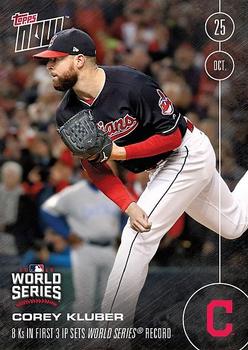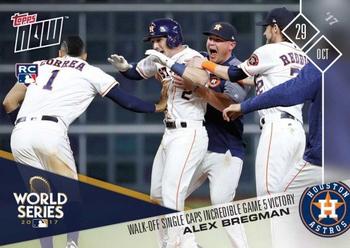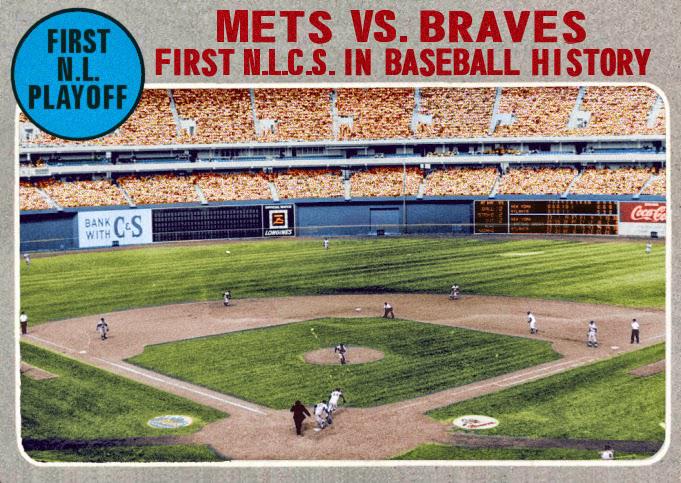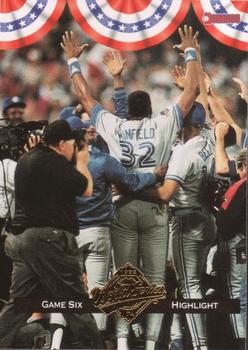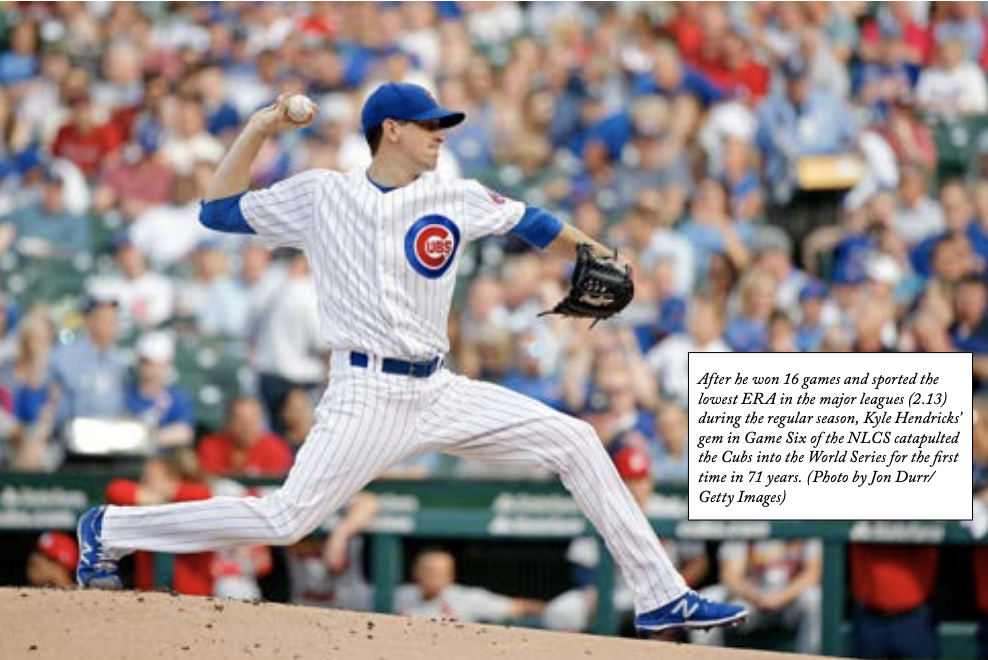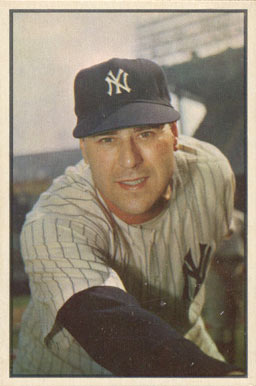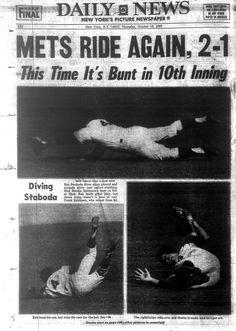October 11, 1979: Sanguillen comes through again in Game Two
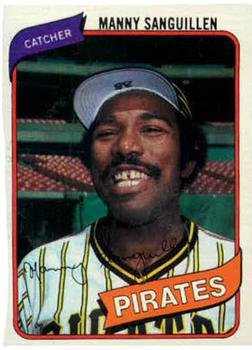 Game Two of the fall classic promised a potential pitchers’ duel between the Orioles’ Jim Palmer, a three-time AL Cy Young Award winner, and the Pirates’ curveball specialist Bert Blyleven. Palmer was a four-time World Series participant and two-time champion with a 7-2 postseason record, who had had returned in July from tendinitis in his right elbow to help the Orioles reach their fifth Series. Prior to Game Two, he acknowledged the Pirates’ hitting prowess but also exuded both confidence and cockiness as he discussed his strategy for pitching to Dave Parker: “He’ll get fastballs on the outside corner. He shouldn’t be able to pull them for homers. He’ll get them until he proves to me that he’s smart enough to accept the singles I’m offering him.”1 The Pirates were equally confident, with Omar Moreno stating his belief that the Montreal Expos — whom the Pirates had fought to the last day of the season for the NL East championship — were a better team than the Orioles and Bill Madlock making the prophetic comment that “They [Orioles] can’t stay with us for an entire Series.”2
Game Two of the fall classic promised a potential pitchers’ duel between the Orioles’ Jim Palmer, a three-time AL Cy Young Award winner, and the Pirates’ curveball specialist Bert Blyleven. Palmer was a four-time World Series participant and two-time champion with a 7-2 postseason record, who had had returned in July from tendinitis in his right elbow to help the Orioles reach their fifth Series. Prior to Game Two, he acknowledged the Pirates’ hitting prowess but also exuded both confidence and cockiness as he discussed his strategy for pitching to Dave Parker: “He’ll get fastballs on the outside corner. He shouldn’t be able to pull them for homers. He’ll get them until he proves to me that he’s smart enough to accept the singles I’m offering him.”1 The Pirates were equally confident, with Omar Moreno stating his belief that the Montreal Expos — whom the Pirates had fought to the last day of the season for the NL East championship — were a better team than the Orioles and Bill Madlock making the prophetic comment that “They [Orioles] can’t stay with us for an entire Series.”2
Once the talking was over and play began, not much seemed different from the night before. The attendance was an almost identical 53,739, the game-time temperature was 45 degrees, and the Pirates couldn’t escape the first inning without committing a blunder. Moreno began the game with a single up the middle for his first hit of the Series, but any good feeling did not last long as he bungled a hit-and-run attempt that resulted in an easy double play for the Orioles. Moreno was running at full speed and had rounded second base when he lost track of the ball Tim Foli had hit for a foul popup. Eddie Murray caught the ball and tossed it to Palmer, who was covering first base, for the twin killing. The bottom of the first inning was certainly different from Game One, however, as Blyleven set the Orioles down in order.
Willie Stargell, John Milner, and Madlock led off the second inning with consecutive singles to plate the first run, and Ed Ott followed with a sacrifice fly that scored Milner to give the Pirates a 2-0 lead. The Orioles struck back immediately on Eddie Murray’s leadoff home run in the bottom of the inning, but Blyleven avoided further trouble and preserved the 2-1 lead by striking out Palmer with two out to end the frame.
Both pitchers held opposing batters in check until Ken Singleton led off the bottom of the sixth inning with a looping single to left field and scored on Murray’s long double to left-center field to tie the game, 2-2. Murray advanced to third on Doug DeCinces’ hopper to Foli and attempted to score on John Lowenstein’s line out to Parker. The strong-armed Parker rifled a perfect throw to catcher Ott, who moved forward to tag Murray out before he ever got near home plate in what Ott termed “an instance […] of ‘Mohammed coming to the mountain.’” 3 Parker’s throw preserved the 2-2 tie for the Pirates, and it was reminiscent of the two throws he had made in that summer’s All-Star Game that had garnered him the MVP award for the midsummer classic.
The decision to send Murray home on the play was defended by the managers on both sides after the game. Orioles manager Earl Weaver explained, “Cal [third-base coach Cal Ripken Sr.] sent him. We were trying to force the play […] When you shoot craps and gamble, sometimes you lose.”4 Bucs skipper Chuck Tanner concurred: “If I or my coach had to make that decision, we would have sent him in. It had to be a perfect throw and a good tag. If you’re scared to make that play, then you shouldn’t be here.”5
A heavy rain began to fall in the top of the seventh inning, and its effects were noticeable as both the field and the play became reminiscent of Game One. In the top of the inning, Madlock hit a one-out infield single and advanced to second base when DeCinces threw the ball over first baseman Murray’s head for his third error in two games. After Palmer struck out Ott, he intentionally walked Phil Garner to set up a force play at any base as the pitcher Blyleven was due to bat next. Mike Easler pinch-hit for Blyleven and worked a walk to load the bases, but Omar Moreno struck out on three pitches to end the inning. Don Robinson took the mound for the Bucs in the bottom of the seventh and walked the bases loaded before escaping his jam by striking out Singleton for the final out of the inning.
The Orioles mounted another scoring threat in the bottom of the eighth inning. Murray led off the frame with a blooper to center field for a single. DeCinces then bunted the ball toward the mound, but Foli couldn’t handle Robinson’s throw — which was to the wrong side of the base — and was charged with an error that resulted in runners on first and second with no outs, Weaver allowed Lowenstein to swing away, and he hit a sharp grounder to Foli, who missed the tag on Murray but kept his wits about him and threw to Garner for the force on DeCinces. Garner relayed the ball to third base, where Madlock now had Murray in a rundown. Once Garner made the tag on Murray, the Orioles were left in a two-out situation with only Lowenstein on first base, after which Billy Smith grounded out to end the inning. Later, when Orioles manager Weaver was asked if he regretted not having Lowenstein bunt on that play, he replied, “No way. That’s our style of play.”6
Though Weaver expressed no regrets after the game, the Orioles’ lost scoring opportunities in the late innings of Game Two came back to haunt them in the end. Bill Robinson, pinch-hitting for Milner, led off the top of the ninth with a single. Weaver pulled Tippy Martinez from the game in favor of his closer, Don Stanhouse, while Tanner inserted basestealing specialist Matt Alexander as a pinch-runner for Robinson. After Alexander was thrown out at second on a steal attempt and Madlock flied out, Ott singled on a bad-hop bouncer off second baseman Billy Smith’s chest and reached scoring position when Garner drew a four-pitch walk.
The next batter was grizzled veteran Manny Sanguillen, who stepped to the plate to pinch-hit in the pitcher’s spot. “Sangy,” as his teammates called him, fouled off a pair of pitches before lining a single to right field. As Ott chugged around third base toward home plate, Singleton fielded the ball and made a throw that looked to be the equal of Parker’s throw in the sixth inning, but Murray cut the ball off and threw a relay to catcher Rick Dempsey that was a split-second too late. Ott made a great hook slide around Dempsey’s attempted tag to give the Pirates the lead. After Moreno lined out to Smith at second to end the top half of the inning, Bucs relief ace Kent Tekulve closed out the game with a one-two-three bottom of the ninth that included strikeouts of Dempsey and Kiko Garcia to seal the 3-2 victory for the Bucs.
After the game, opinion was split over Murray’s decision to cut off Singleton’s throw. Ott might have been out if Murray had let the throw through, but Orioles catcher Dempsey put the issue into proper perspective when he said, “You’ll never know.”7 Right or wrong, Murray would not be the same player for the rest of the Series. Through Game Two, he batted .800 with a double and a home run, drew three walks, scored two runs, and had two RBIs, but through the last five games he would draw one walk and score one run while going 0-for-21 with the bat.
In the Pirates’ locker room, the attention centered on pinch-hitting hero Sanguillen, whose history with the club included 11 hits in the 1971 World Series against the Orioles. Sangy, who had been the most grief-stricken of all the Pirates after the legendary Roberto Clemente died in a plane crash on December 31, 1972, invoked the memory of his dear friend as he said, “I have him in my heart. Anything we do, we’re going to do for him. … And tonight, what happened tonight, I give it to the great No. 21, Roberto Clemente.”8
Thanks to Sanguillen’s clutch single, the Pirates had taken a game from the Orioles at Memorial Stadium, thus negating Baltimore’s home-field advantage. The Series, tied at one game apiece, would now shift to Pittsburgh’s Three Rivers Stadium for Game Three.
This article appeared in “When Pops Led the Family: The 1979 Pitttsburgh Pirates” (SABR, 2016), edited by Bill Nowlin and Gregory H. Wolf. To read more game stories from this book at the SABR Games Project, click here.
Sources
https://www.baseball-reference.com/boxes/BAL/BAL197910110.shtml
http://www.retrosheet.org/boxesetc/1979/B10110BAL1979.htm
Notes
1 Marino Parascenzo, “Palmer Was Prepared for Pirates,” Pittsburgh Post-Gazette, October 12, 1979.
2 Phil Musick, “Parker Fixes His Name on World Series,” Pittsburgh Post-Gazette, October 12, 1979.
3 Ron Fimrite, “A Series of Ups and Downs, Sports Illustrated, October 22, 1979: 24-31.
4 Lowell Reidenbaugh, “Manny is the Most Jubilant for Bucs,” The Sporting News, October 27, 1979: 8.
5 Ibid.
6 Ibid.
7 Fimrite, “A Series of Ups and Downs.”
8 Joseph Durso, “Pirates Dedicated to Clemente,” New York Times, October 12, 1979.
Additional Stats
Pittsburgh Pirates 3
Baltimore Orioles 2
Game 2, WS
Memorial Stadium
Baltimore, MD
Box Score + PBP:
Corrections? Additions?
If you can help us improve this game story, contact us.


